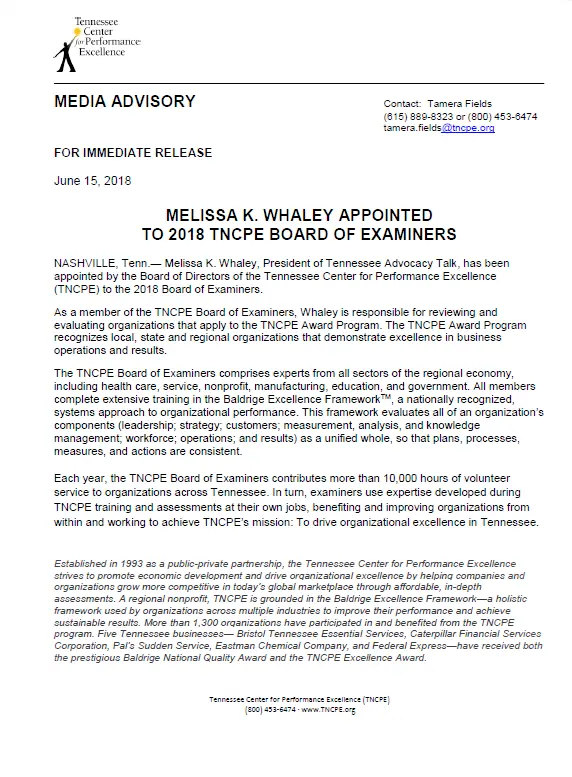
When is it okay to demand or rush a recipient to only answer, “Yes or No,” to a question you ask? Have you ever been impatient when someone cannot give you a simple Yes or No?
Unless you are trying to sell a product or service, negotiate a contract, or productively time manage a conversation, NEVER ask a close-ended question where you only want a Yes or No answer to, especially, if it is of substantial importance to you.
Now, I’m not talking about factual questions like, “Do you have a car?” or preference questions like,” Do you like pumpkin pie?” I am talking about those questions that have sincere meaning.
Communication interpretations can be clouded and misguided if information is restrictive, especially when conducting communication in topics for business and personal life.
My hope for this article is to articulate my reasoning on why you should never want to pressure and rush to obtain a Yes or No answer from someone, especially in some cases when they have no idea why you are asking the question or if your question is of significant value to you…Does this make sense? or another way of asking in a subconscious positive way…. Did I communicate that correctly?
Communication is Key.
First things first…. Gender. Yes, Gender does play a role in how people communicate. It is wise to take into consideration, Gender, when trying to conduct effective communication. A Journal of Humanities and Social Science Gender Communication Study states:
” …Men use an instrumental style of communication. Instrumental style of communication for men is to focus on identifying goals and finding a solution. Women communicate in an expressive style.” ( Prof Mohindra, Dr. Azhar)
There is plenty of research in Gender Communication to show women are more likely to elaborate their communication to explore and organize thoughts while men are more than likely to already have their situation figured out. Men have a clear purpose for questioning or only thinking about the roots of the topic at hand and not be concerned about all the fluffy details. It is important to understand Gender Communication if you are really wanting to improve your communication.
With that out of the way, lets now think of reasons why someone cannot respond in a simple Yes or No answer and why someone would rush a Yes or No answer to the question they asked.
When an Inquirer is rushing or demanding an Answerer to simply give them a Yes or No response to a question and nothing else, the answering party may not have all the information they need in order to give a simple Yes or No. They do not want to give an answer to a question they have not had time to process correctly.
So, when the Answerer asks for more information from the Inquirer or they combine the answer with an explanation before the answer, this may frustrate the Inquirer. All the Inquirer wanted was a quick and simple Yes or No and that’s it, nothing else, they do not want the Answerer to elaborate or ask more questions. They are asking a closed-ended question and they want an answer right on the spot!.…. Why is that?…..Simple….they get frustrated because they lost control of the conversation, let me explain.
A closed ended-question is asked to get a direct response and if your question is asked in a way to provoke a Yes or No answer, then it is called a tie-down question. It is a sales tactic I learned over 20 years ago in order to control the conversation for time management and to close a sale or negotiate a contract. These questions can start with words such as: Do, Will, Would, etc.
I asked these questions because I already knew what answer I was going to get when I asked them, I was in complete control of the conversation, that was the purpose. When someone asks you a close-ended question, it is typically because they want control of the conversation consciously or subconsciously and when they lose their control, it ruins their expected time frame on receiving the answer.
Surprisingly though, Peter Worley BA MA FRSA, a co-founder and CEO of The Philosophy Foundation, argues that a close-ended question is only grammatically closed, but always perceptually open and I agree with his philosophy wholeheartedly. His philosophy proves, when positioned properly, a close-ended question can provoke open-ended responses because the Answerer feels a subconscious need to add justification to the answer versus just only saying Yes or No. He has even named this practical questioning strategy, “Question X;” therefore, depending on how the Inquirer demands their Yes or No questioning to you, you still may be humanly provoked subconsciously to answer the question open-ended anyway.
All in all, to be the most effective in communication, “Give me a Yes or No only,” question should never be asked to solve dilemmas that are of substantial importance to you. It is highly unlikely someone can fully understand and answer a question in the best way possible if they are being rushed and restricted in their responses; it is honestly unfair.
On the flip side, how can you really rely on an answer from someone who is rushed and restricted from information needed to make an educated response? Adding or subtracting a specific description to a question can change an answer to the question. Also, as time goes on, people can change their minds once they have had time to really think about your question. So, why do you think people ask closed ended-questions and restrict information to rush to a Yes or No answer?
Here are a few thoughts…
- They already have their mind made up and they want you to quickly reassure them they are right. If you give them an answer they are not expecting and do not provide them a simple Yes or No, then the conversation is taken out of their control.
- There could be a situation where their mind is not made up and they want a quick answer from you to determine their own direction; however, this is dangerous because if you answer and they proceed with your answer and the decision turns out to be bad, then they can take the blame off of themselves and put it back on you.
- They also may have been mentally exhausted over the situation and do not want to listen to an explanation of your answer, they already know all scenario cases so when the Answerer reiterates that for their own processing, instead of the Inquirer being patient to let the Answerer process the question, the Inquirer gets impatient.
So, all of these situations could lead one to ask,
“Why does an Inquirer not want an elaborated response versus just only a rushed Yes or No, gets impatient when the Answerer tries to dig deeper before they will give their response, or gets frustrated when more time is needed in order for the Answerer to respond at all?
It’s because the Inquirer has already mulled over their details and in their mind, the only piece missing for them to quickly solve their mental dilemma is to get a Yes or No answer on a specific topic so they can move on from their stressful, internal feelings; however, demanding a Yes or No answer from someone who does not know why you are asking the question, who does not know what you have mentally going on inside your head when you ask it, or has not had time to process the answer to the question is like you demanding a doctor to conduct a surgery without knowing what the surgery is for or if it is even warranted. This is dangerous.
You should never just want a Yes or No answer on something of value to you. You should always want someone’s elaborated response on a question or give them adequate time to process your question and ask follow-up questions. Don’t ask a question if you don’t have the time to be patient, actively listen, or allow them time to processes their thoughts and on the flip side, never answer a question you are not prepared to answer or feel rushed into answering. Especially if you are seeking advice and opinions to help make future decisions for others.
In the end, don’t short change or rush your decision making for things of significant value to you, take the time you need to do what is right for you.
Till Next time,
Mel K
https://www.linkedin.com/feed/
References:
(n.d.). Retrieved from https://www.philosophy-foundation.org/blog/tag:40-questions.
Worley, P. (1970, January 1). Peter Worley, Open thinking, closed questioning: Two kinds of open and closed questions. Retrieved from https://philpapers.org/rec/WOROTC.
Mohindra, P. V. (2012). Gender Communication: A Comparative Analysis of Communicational Approaches of Men and Women at Workplaces. IOSR Journal of Humanities and Social Science, 2(1), 18–27. doi: 10.9790/0837-0211827



















